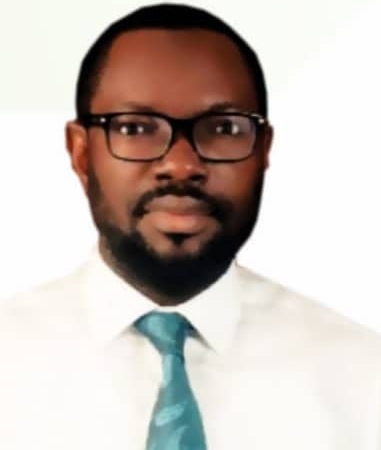
Ebereonwu canvasses industry-academia collaboration to close skill gaps
Sopuruchi Onwuka
Emerging Nigerian petroleum industry policy analyst, Dr Charles Ebereonwu, has called for effective collaboration between the nation’s industrial sector and the academia in order to deepen innovations that propel economic development of the country.

Dr Ebereonwu, who currently functions in the indistry as the Country Communications Manager at TotalEnergies E&P Nigeria Limited, declared in a webinar on Thursday that the desired collaboration between the industry and the academia must be established on synchronized communications strategy that connects the skills need of the industry to the curricula structure of the educational institutions in the country.

He also proffered a harmonized pan-industry approach on interventions in the academic sector, saying that data based and need driven interventions have become necessary for optimal utilization of resources and capacity in the nation’s academic institutions.
Dr Ebereonwu was the Speaker at the Industry – Academia Linkage (IAL) Series 4.0. hosted by the Linkages, Exchange and Partnership Unit of the Petroleum Training Institute (PTI), Effurun, Delta State.
In delivering the lecture, stated that communication must be driven by strategy in order to meet the expectation and deliver the overall goal of stakeholder; adding that the opportunity for collaboration holds greatest value in churning out graduates with honed industry skills.
He pointed at the huge annual budgets spent by the petroleum industry on retraining fresh university graduates as an evident pointer to serious communication gap between the petroleum industry and the nation’s academic institutions, adding that structured communication between the industry and the academia could lead to curricula alignment towards the skills need in the while retraining budget would now be properly applied to research and innovation.
He maintained that bridging communication gaps and forging effective collaboration among the government, the industry and the academia would lead to desirable evolution of entrepreneurial ecosystem and funding symbiosis required to drive realization of prime national economic growth aspirations.
In taking a swipe at the separate and segmented industry interventions in the academic sector, Dr Ebereonwu canvassed a pan-industry intervention approach that is data driven and based on need assessment. He explained that using data techniques to map industry interventions in the academic sector would eliminate replication of same or similar programmes by multiple companies. He noted that replication of similar intervention programmes by companies leads to underutilization and resource sub-optimization.
In proffering solutions to communication gaps among the two sectors, Dr Ebereonwu stated that best strategies for communication and collaboration include joint participation in policy debates at industry conferences. He called on tertiary institutions and keen players in the academia to pitch their ideas to the industry through participation and exhibition at industry conferences.
He also called for expanded students’ industrial work experience programme to help align tertiary students towards the skill needs of the industry and also enable them challenge obsolete curriculums in their respective institutions.
In calling on the academia and the industry to promote regular adaptation to changes and innovation, Dr Ebereonwu cited the transformation of TotalEnergies from mainly oil and gas multinational company to a diversified energy company that now works to erase the carbon footprints of fossil energy through speedy adaptation to energy transition.
In listing the innovations adopted by TotalEnergies in the face if the prevailing energy transition, Dr Ebereonwu mentioned the company’s plastic recycling plant in Port Harcourt, Rivers State, which, according to him, cuts carbon emissions equivalent to the absorption by some 4000 trees.
He also listed the company’s energy portfolio diversification and realignment towards renewable carbon neutral energy options including solar and wind power which, according to him, now powers operations at over 254 or 50 percent of the company’s fuel retail stations across the country.
Most importantly, he pointed out, TotalEnergies has become the first upstream oil and gas production player in Nigeria to end routine gas flare at all its production sites in the country. He added that the company currently prides itself as the leading upstream petroleum company that boasts of producing more energy and less emissions in line with the global net zero movement.
Dr Ebereonwu stated that the establishment of TotalEnergies ERP Limited is a standing evidence that carbon neutral energy portfolios would lead the company’s energy mix by 2050.



